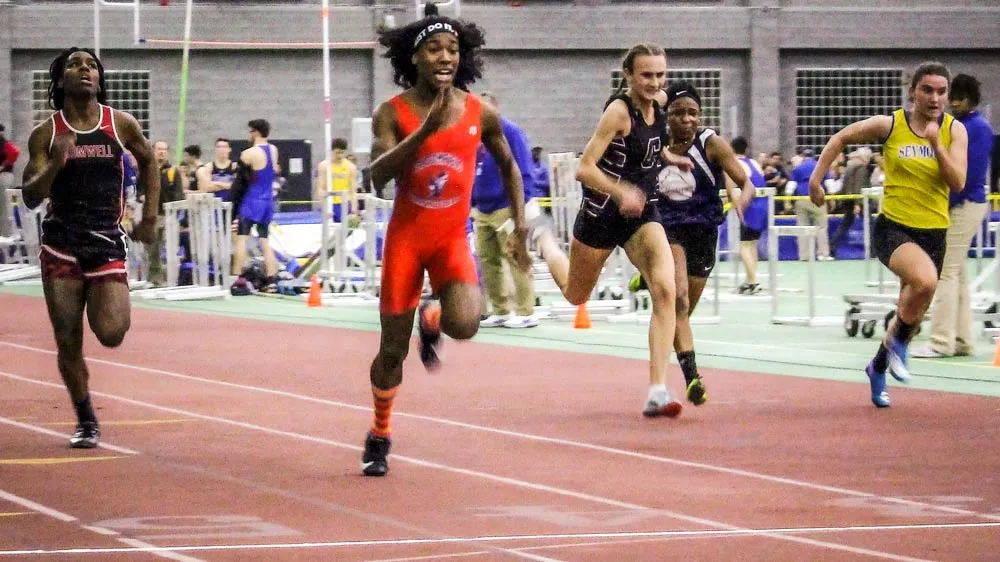November 4, 2013
LGBTs Now Protected From Domestic Violence Under VAWA
Winnie McCroy READ TIME: 4 MIN.
Domestic violence happens at the same rate in the LGBT community as in the straight community. But now, barriers to service are removed thanks to the VAWA. In Boston in particular, a new report to the Governor's Council highlights the high prevalence and lack of resources, as the GLBTQ Domestic Violence Project gets a substantial grant to investigate best practices in dealing with gay domestic violence, as our community fights for wider acceptance.
"I think for any community that is facing oppression, it is really hard to acknowledge internal violence and give it the respect it needs," said L.A. Gay & Lesbian Center Domestic Violence Lead Staff Attorney Terra Slavin. "When fighting for relationship rights, you must really show how important it is to you, and I think that can make it difficult to talk about domestic violence. That said, increasingly more programs are acknowledging issues and growing their awareness."
Slavin said that domestic violence happens at the same or slightly greater rates in the LGBT community as in it does among heterosexuals. One in three gays will experience domestic violence in their lifetime. And unlike the physical differentials that mark male-female violence, many people mistakenly believe that male-male or female-female violence is negligible, or balances itself out.
"You do sometimes see the notion that it's two men, and they can work it out, or two women, so it's not a big deal, that can really minimize the violence and dangerousness of the situation," said Slavin. "People don't recognize that it is incredibly dangerous; there were 22 reported murders among LGBT partners in the Intimate Violence Report from last year. It makes it increasingly challenging for survivors to get assistance."
But this year, thanks to the reauthorization of the Violence Against Women Act, LGBTs will now be protected under the classes of sexual orientation and gender identity. This will increase funding and grant opportunities to LGBT DV groups, and will prevent discrimination for service providers in terms of those seeking help. It is the first non-discrimination protection on the basis of sexual orientation or gender identity in federal law.
Slavin advises that people take domestic violence seriously, and that those who are in a violent relationship reach out for assistance and talk to someone, rather than just pack up and leave.
"The prevailing thought is that people need to leave, but that's when it can be most dangerous," said Slavin. "You need to talk to an expert in LGBT violence for a safe planning and exit strategy, and providing that support."
Boston Steps Up to Plate for LGBT Domestic Violence
In Massachusetts, the Governor's Council to Address Sexual and Domestic Violence kicked off Domestic Violence Awareness Month on Oct. 1 with the report "Disparities in Prevalence, Access to Services and Outcomes for Sexual and Domestic Violence Survivors from Five Underserved Populations," that documented the disparity in prevalence and access to services for GLBT survivors in Massachusetts. Advocates hope the report will lead to increased policy prioritization and an increase in access to services for GLBT survivors.
According to the Massachusetts Behavior Risk Factor Survey, LGB youth was almost four times more likely to experience sexual violence victimization than heterosexual students. And transgender individuals faced significantly higher rates of abuse, almost double that of gays and lesbians.
"The report is groundbreaking in that it not only gathers the overwhelming data on disparities faced by GLBT survivors, but it also underscores the compounding prevalence rates and barriers to accessing services faced by GLBT individuals that also identify with another underserved group, such as an elder GLBT survivor who lives in a rural area -- and this is true for any of the underserved populations," said Curt Rogers, executive director of the GLBTQ Domestic Violence Project and the Co-Chair of the Services Accessibility Committee that issued the report.
The report indicates that there are many barriers to LGBT survivors, including denial of services, discrimination from service providers, and insufficient culturally specific services. It suggested improving LGBT services and increasing mainstream options.
"While it is clear that each population has its unique and urgent needs, what is striking from this report is the common themes that are emerging from these underserved populations and the realization that, by addressing the common themes, we may not only be serving these distinct populations, but that we will be likely increasing accessibility for multiple underserved populations," said Sheridan Haines, executive director of the Massachusetts Governor's Council to Address Sexual and Domestic Violence.
To that end, the 20-year-old GLBTQ Domestic Violence Project was recently awarded a $700,000 four-year federal contract to conduct groundbreaking research into trauma-informed services for GLBTQ survivors. Currently, there are no evidence-based practices for working with GLBTQ survivors.
According to Greg DeCenzo, Workforce Relations and Compliance Consultant at Blue Cross Blue Shield of Massachusetts and the newly-elected GLBTQ-DVP Board Chair, "This award allows us to identify the first evidence-based domestic violence services for GLBTQ survivors -- this is critical for both improving service delivery and increasing mainstream domestic violence programs' ability to work with GLBTQ survivors."
The Verizon Foundation also awarded GLBTQ-DVP a $10,000 grant for community outreach and engagement activities.
For more information, visit www.glbtqdvp.org
Winnie McCroy is the Women on the EDGE Editor, HIV/Health Editor, and Assistant Entertainment Editor for EDGE Media Network, handling all women's news, HIV health stories and theater reviews throughout the U.S. She has contributed to other publications, including The Village Voice, Gay City News, Chelsea Now and The Advocate, and lives in Brooklyn, New York.


